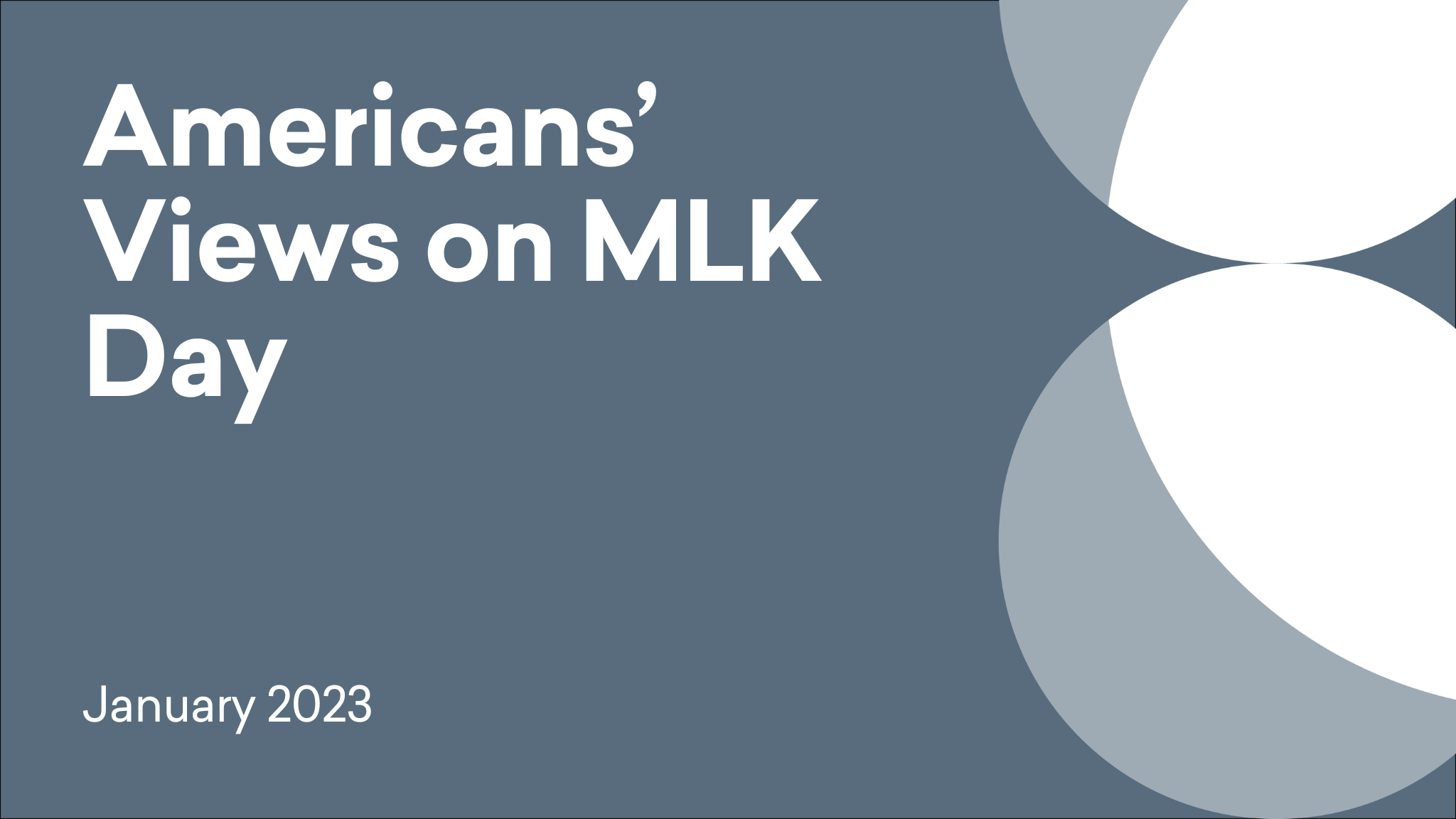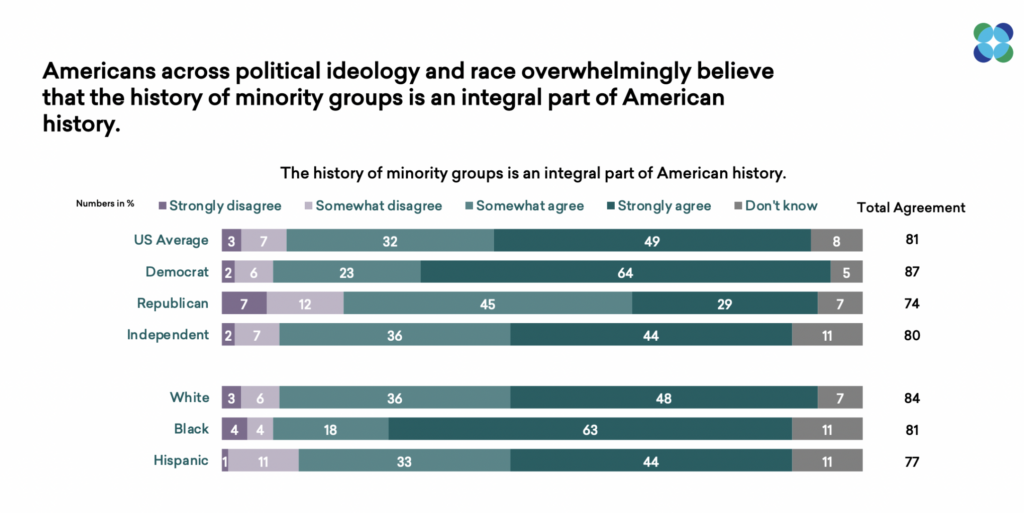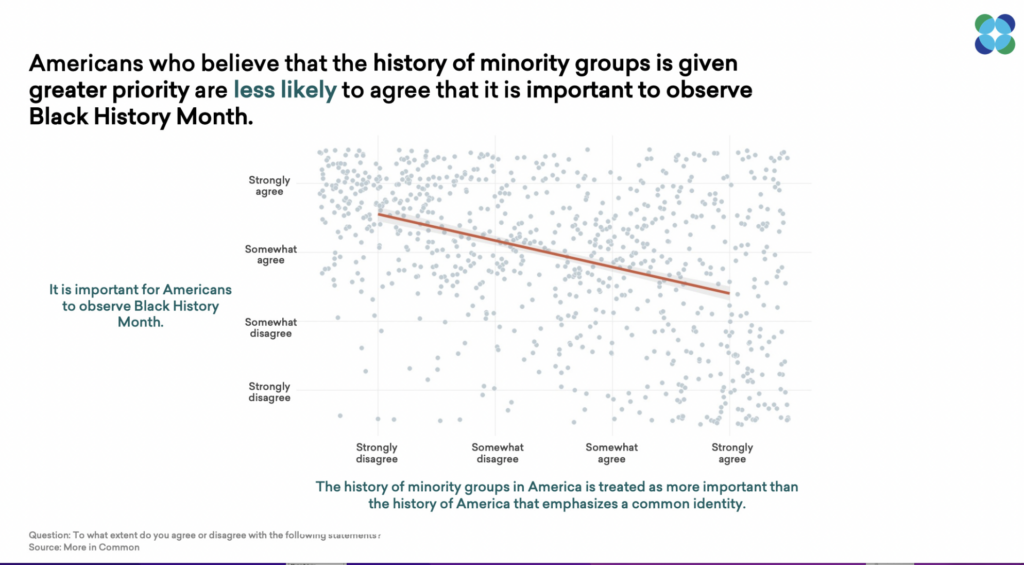
11 January 2023
February 17, 2023
Culture Wars
American Identity
Perception Gaps
A follow-up to our Defusing the History Wars project, this report explores polarization in the national conversation over American history in the context of Black History Month.
Polling Firm: YouGov
Sample Size: n=1,000 US Adults (nationally representative)
Fieldwork Dates: December 22, 2022-January 5, 2023
Margin of Error: +/- 3.1 for US avg.
er for subgroups.
In January 2022, More in Common launched an online community of approximately 400 Americans titled “Americans in Conversation”. We engage them in an online survey platform. From February 18-21, 2022, we asked Americans about their views on Black History Month. A total of N=325 US participants completed the activity, with participants roughly representative across US Census demographics such as age, gender, race, and partisanship.
of Americans believe that the history of minority groups is an integral part of American history.
Americans agree on the importance of observing Black History Month, yet 4 in 10 feel that there is too much attention currently devoted to Black History Month.
of Americans say they are just a little or not at all knowledgeable about Black history.
In December 2022, More in Common released Defusing the History Wars: Finding Common Ground in Teaching America’s National Story. Our research found both real common ground and substantive disagreement on how Americans think US history should be taught to future generations. A clear majority of Americans wants American history to be taught in ways that include both the inspiring and the shameful; that highlight the histories of minority groups alongside history that elevates a shared American identity. At the same time, Americans are divided on how to draw connections between past injustices and present-day America as well as over the degree of emphasis currently given to the histories of minority groups.

In this report, we examine how some of these points of convergence and divergence are at play in conversations around Black History Month. Again, we found ample common ground: Americans overwhelmingly believe that the experiences of minority groups are integral to the story of America and should be taught. And again, we found disagreement: some Americans think Black History Month is being prioritized over history that emphasizes a common American identity, and others think that Black History Month is not given enough attention.

By uncovering areas of agreement and conflict, our report provides recommendations on communication strategies that engage with divergent points of view. It is our hope that by defusing tensions around the topic of US history, we can elevate efforts that seek to deepen our understanding of the diverse experiences of Americans that make up the remarkable story of our country.
Explore the depth of our research at your fingertips. Get the complete insights by downloading the full report today.
What unites and divides Americans today? This newsletter takes a closer look at issues pressing on America’s social and political fabric and provides recommendations for how to strengthen ties to keep us bound together.